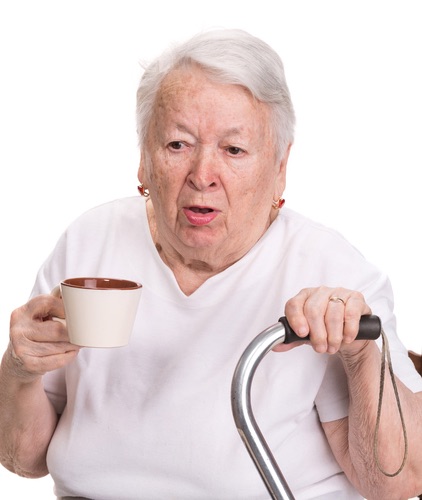
Older adults have a higher risk of choking. Some have documented medical conditions that put them at even higher risk. Because of this, nursing homes must take reasonable measures to help decrease the chance of it occurring, and be ready to respond quickly when it does. Read on to learn important information on how you can help ensure that your loved one is protected from choking accidents in their nursing home.
Higher Risk of Choking Among the Elderly
As we age, we are at a higher risk of choking due to the mouth and throat muscles beginning to weaken and lose their strength over time, making it more difficult to swallow food. Difficulty swallowing (dysphagia) affects all ages, but it’s more common in the elderly. Additionally, older people are more vulnerable to choking because the following situations are more likely to occur:
- After effects of having a stroke;
- Bad posture, which can lead to food becoming stuck in the airway;
- Dentures or missing teeth;
- Dry mouth from medications and/or aging;
- Gastroesophageal and gastrointestinal disorders; and/or
- Neurological disorders, including cerebral palsy and Parkinson’s Disease.
Signs of Choking
Not only are older people more vulnerable to choking because of physical factors, they may also have difficulty communicating that they are indeed choking, especially residents who suffer from diseases of the mind like Alzheimer’s and Dementia. This is why it is critical for staff to monitor them closely and watch for the following signs:
- A look of panic on the face;
- Loss of consciousness;
- Coughing or gagging;
- Inability to speak;
- Turning blue around the face, lips, and fingernails; and/or
- Wheezing.
Negligence: Administrators and Caregivers
Because Administrators control the policies and the way that the nursing home is run, they and the caregivers, who nurture and tend to the residents’ needs, are the people who can minimize the risk of choking accidents for residents. While nursing homes can have capable Administrators and compassionate caregivers, there are times when they are negligent, and these incidents will take place. Some forms of negligence from nursing home Administrators and staff are:
- Failing to conduct adequate background checks of staff;
- Understaffing the facility;
- Failing to properly train staff;
- Not monitoring residents properly;
- Failing to follow the Care Plan;
- Not performing the one-on-one duties required of a caregiver;
- Not properly cutting up food;
- Rushing residents to finish their meals;
- Providing foods that are difficult to swallow; and/or
- Leaving high-risk patients unattended.
What Can Family Members Do to Protect their Loved Ones
As a family member you entrust the staff with taking care of your loved one, but there are steps that you can take to help keep them safe. Here are some suggestions:
- Keep in touch with your loved one as much as you can, checking in on their feelings. Take note of any changes in behavior or physical changes;
- Follow up with their medical needs, including any new and continuing medications;
- Notify staff of special dietary restrictions (for allergies or choking hazards); and
- Meet frequently with the Director of Nursing and Administrator to ensure the Care Plan is appropriate and being followed.
If You Have Concerns about Your Loved One and their Nursing Home, Contact an Attorney
The worst result of choking is death, however, there are other lasting effects that can be harmful. If your loved one has experienced a choking accident and you think that the nursing home should be held accountable for their harm, you should consider speaking to an experienced attorney who can go over your potential claim. Contact us here at Walton Law, APC for help with this or other nursing home matters.
